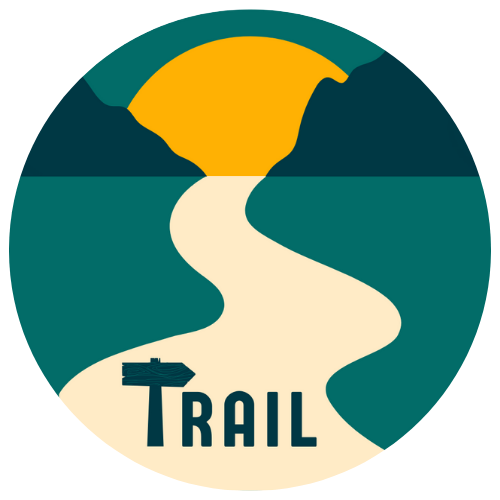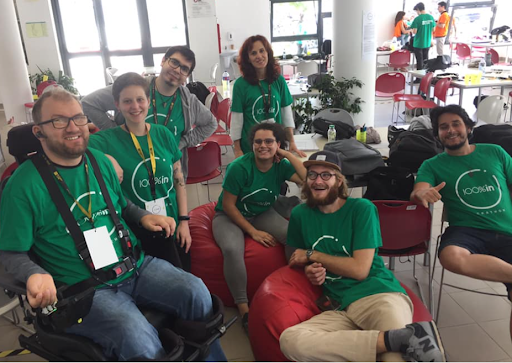- Summary
- Fact Sheet
- Synergy and Transfer
- More Information
Project 100% is the result of a partnership between the Polytechnic of Leiria and the Instituto Padre António Vieira (IPAV). It started in 2018 aiming the promotion of the integral inclusion of students with special educational needs, in 2000 it was approved in the program Portugal Inovação Social.
The 100% IN® came to reinforce the inclusion perspective of the IPLeiria within the academic community but also in the national and international context.
Its main objectives are to analyse each student with special needs case, attributing a “Case manager” to each student, drawing an intervention plan with the student to address his/her special needs:
- Low physical capacity, visual, earing or mobile
- Dyslexia, dysorthography, dyscalculia,
- Neurodevelopmental disorders, as autism, or other conditions that affect learning
- Other physical or psychological disorders.
Activities:
- Attribution of a “Case manager” to each student with special needs;
- Program FASE® Buddy 100% IN® – find a student buddy to each student with special needs;
- Each student with special needs has a card with hours to attribute to teachers that will help them in their curricular units;
- 100% IN® hackathon, 24h to generate inclusive ideas for students with special needs;
- To welcome researchers in the field of the digital inclusion of citizens with special needs.
Target Groups:
Students with special needs that can benefit from digital tools for social inclusion.
Special focus on learners facing barriers to accessing higher education. The primary target groups include:
- Students with disabilities: the project is dedicated to supporting students with various physical, sensory, cognitive, or learning disabilities, ensuring their full participation in academic and social activities.
- Students from economically disadvantaged backgrounds: it includes students from low-income families who may lack access to essential educational resources, such as technology or academic materials.
- Mature students and non-traditional learners: this group includes individuals who may have had delayed or interrupted educational journeys due to personal, financial, or professional reasons and require tailored support to re-engage with academic life.
- International and minority background students: by addressing language barriers, cultural adaptation, and social integration, the project supports students from underrepresented ethnic and cultural backgrounds.
- Educational staff: faculty and support staff are also engaged in training to foster an inclusive learning environment, benefiting students by building awareness and understanding among those who guide them.
Special support required:
The project provides special support by the attribution of a “Case manager” to each student, through the program FASE® Buddy 100% IN®, that finds a student buddy to each student with special needs and the attribution of an hour card to spend with teachers that will help in the curricular units.
The project invests in infrastructure modifications, such as wheelchair-accessible facilities, tactile paths, and ramps, to ensure all students can navigate the campus easily. It also works to make classrooms and study spaces universally accessible.
A range of adaptive technologies is available for students with disabilities, including screen readers, hearing aids, speech-to-text software, and specialized hardware for those with mobility issues. This technology enables students to access learning materials and participate fully in coursework.
Course materials can be offered in multiple formats (e.g., braille, large print, and digital) to accommodate various learning needs. Additionally, teachers are trained to design and deliver flexible course content that is accessible to all students.
The project offers one-on-one mentorship programs, pairing students with dedicated mentors who provide guidance, academic coaching, and emotional support. Counselling services are also available, assisting students in managing challenges related to disability, economic stress, or adapting to the academic environment.
To alleviate economic barriers, the project provides scholarships, financial aid, and subsidies for learning materials and living expenses, particularly for students from low-income backgrounds.
Beyond academics, 100% IN® promotes inclusive participation in extracurricular activities, social events, and community-building initiatives, which are designed to be accessible and welcoming to all students.
All IPLeiria’s different schools work closely together and share resources, particularly those related to special needs.
Innovation:
Case manager: The already mentioned “Case manager” the Program FASE® Buddy 100% IN® and the hours card, practical measures to help each student with special needs.
Universal design for learning (UDL): the project employs the UDL framework to create flexible learning environments that accommodate diverse learning preferences. This includes offering varied means of content representation, engagement, and assessment, ensuring that every student can access and demonstrate their knowledge.
Inclusive digital platform: a customized digital platform is in place to centralize resources and support services for students with disabilities. This platform offers accessible e-learning materials, interactive tools for real-time assistance, and integration with assistive technologies to provide a seamless learning experience.
Adaptive and wearable technology: Beyond standard assistive devices, the project can incorporate adaptive technologies such as wearable devices and personalized learning apps that allow students with mobility and sensory impairments to interact with their environment and coursework in real-time, if needed.
Peer-assisted learning networks: this approach builds inclusive communities by connecting students of varying abilities, fostering mutual support and shared learning experiences. Peer-assisted learning sessions are guided by trained facilitators and promote teamwork, confidence-building, and skill-sharing.
Real-time translation and captioning: for students with hearing impairments or language barriers, the project offers real-time captioning, sign language interpretation, and translation services during lectures and events. These supports ensure accessibility to spoken content and encourage active participation.
Inclusive curriculum development workshops: faculty and staff are trained through workshops focused on designing curricula that naturally incorporate accessibility, avoiding the need for retrofitting courses later. This forward-thinking approach allows inclusive practices to be built into the academic structure from the outset.
Gamification: create engaging and interactive learning experiences through gamified apps and software tailored to different learning styles.
Virtual and augmented reality: immersive learning experiences can make abstract concepts more tangible and engaging for students with diverse learning needs.
Individualized education plans (IEPs): develop customized learning plans for each student, taking into account their unique strengths, weaknesses, and learning styles.
Most of the innovative ideas are transferable to other centres, the difficulty could be the compensation of the staff involved in the project, as the case manager, the buddy or the teachers, some extra resources have to be considered.
The project’s inclusive learning framework, particularly its use of Universal Design for Learning (UDL) and adaptive technology, can serve as a model for other colleges and universities.
By aligning with government or EU-level accessibility initiatives, the project can contribute to setting universal standards for inclusive higher education. The 100% IN® framework could support policy-making efforts by showcasing effective strategies and measurable outcomes that inform broader inclusion policies.
Through partnerships with technology providers, the project could influence the development of new assistive tools and software solutions for learners with disabilities.
The principles and practices of inclusivity and accessibility used in 100% IN® can be adapted for professional and corporate training environments. Companies could apply similar methods—like accessible content formats, peer-assisted learning networks, and adaptive technology—to create inclusive workplaces and training programs for employees with disabilities.
Public sector organizations focused on social inclusion can adopt elements from 100% IN®, particularly in designing programs that promote digital accessibility and provide support systems for disadvantaged groups.
The project’s research on inclusion and accessibility in education can synergize with advocacy networks, NGOs, and policy think tanks.
Project Website:
https://www.ipleiria.pt/arquivo/projeto-100-in/

